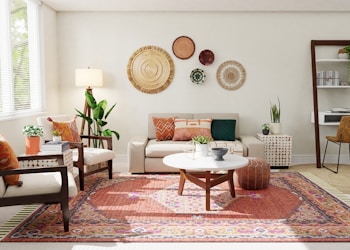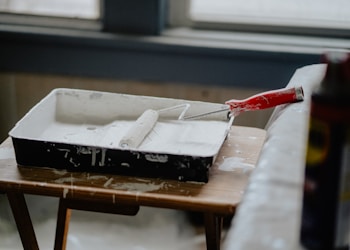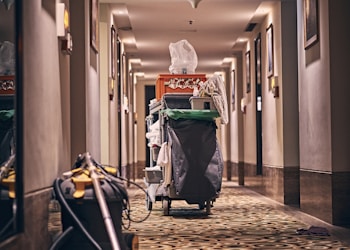You most likely have smoke detectors in your home, as well as a variety of non-skid mats, handrails, grab bars and lots of other things to keep your family safe. Are they sufficient? Maybe not.
Our humble abodes are supposed to make us feel safe and secure. However, various circumstances or objects in the house may contribute to it being unappealing. Health risks such as bugs and rodents hiding in corners, mold, and secondhand smoke may exist in our homes. While some of these hazards are simple to address, others necessitate a change in lifestyle and behavioral patterns.
Now, making your home healthier and more environmentally friendly does not have to be expensive or time-consuming. A few simple changes can improve the health of your home, everyone who lives in it, and the planet it sits on.
So what’re some genius ways to ensure a safe and healthy environment? You can make your personal space a haven by working to make your home safe. With the following ways, you can create a healthy, secure, and loving environment for your home:
Maintain and make repairs
Remember how you said you’d fix the hole in the wall? Or how about repairing that dangling wire from the roof? It’s time to fulfill your promises. Have your chimney, floor tiles, pipes, and walls inspected and thoroughly cleaned. Homeowners need to investigate the nooks and crannies of their homes because they might unknowingly be contaminated with toxic substances such as asbestos. Asbestos causes lung cancer, pleural mesothelioma, and other cancers. It is regulated in the United States of America but not banned. Thus, conduct a thorough examination of your home and move on with the repairs.
Polish the floors and check that the window casings are adequately sealed. Also, check the insulation and see for signs of mold and mildew.
Keep the kids safe
One-third of American children share a house with a firearm, and nearly half of those homes do not keep the guns locked. According to the American Pediatrics Association, the best home for children is one with no guns at all. But if you do own a firearm, keep it locked away and unloaded to keep kids and other household members safe. Similarly, keep medications, poisonous household products like ammonia and bleach, and choking hazards out of the reach of adults and children who may require extra supervision.
Think about your handbags
Many women take a handbag everywhere they go and commonly leave it on dirty surfaces without realizing it. In no circumstance leave your purse on the bathroom floor. However, simply leaning against a store cash register, work desk, or brushing up against other folks can transfer germs to your bag. Some bags can be washed with disinfectant wipes, but others (such as leather bags) require special attention. To keep your bag off the floor, leave it at the door or hang it from a hook. Above all, never leave your bag on a kitchen counter or desk, as these are incredibly crucial surfaces to keep clean and germ-free.
Replace your air filters
As a homeowner, you’ll frequently hear that your air ducts need to be scrubbed. Surprisingly, cleaning your air ducts will not improve your health or lower your utility bills. Independent research has discovered that the process creates so much dust that it may cause more problems than it would solve. There isn’t much research on whether duct cleaning is bad or good, but what there is, doesn’t recommend or endorse it. Nonetheless, it does suggest that if you have mold growth, insect infestations, or significant deposits of dust or wreckage, you should clean the air ducts. Overall, the decision is yours.
However, change your air filters on a routine basis. It’s the most effective method for keeping dust, particles, and allergens out of your home.
Filter your tap water
If you’re used to drinking tap water straight from the sink, you might want to invest in a water filter to ensure your water is safe. According to WebMD, even if your local water supplier filters tap water, it still contains contaminants such as chlorine, pesticides, E. coli, and lead. Investing in a filter, whether a pitcher for your fridge or one that connects to a faucet, can help eliminate these contaminants.
Clean the house
We understand the significance of cleaning. Cleaning helps us stay healthy, care for others, our homes, and personal possessions, and make our surroundings more pleasant by removing dirt and grime. On the other hand, cleaning is easier if you don’t have to de-clutter every step of the way. So, make it a habit of storing every item properly and ensure the entire family follows suit. There is no reason for others not to help unless they are sick or physically unable to. Even toddlers can be trained to place their toys in the toy box. Organize everything and get everyone engaged.
Have a “no electric oasis” – a Zen zone
These days, everyone is always online. But we think it’s healthy to take a break from it now and then. As a result, we recommend establishing a “no electronics” zone in your home as a way to make it better. It doesn’t even have to be an entire room. It could be a corner, a chair, or a floor pillow – but no laptops, cellphones, video game consoles, or tablets are permitted.
Conclusion
Sprucing up your home takes only a few minutes a day, and with these tips, you can make your house a healthy space and protect your health in the long run. Keep in mind that these habits and techniques should be maintained indefinitely. These same routines will help prevent the spread of allergies, flu, dangerous medical conditions, and even common colds in your home.
















